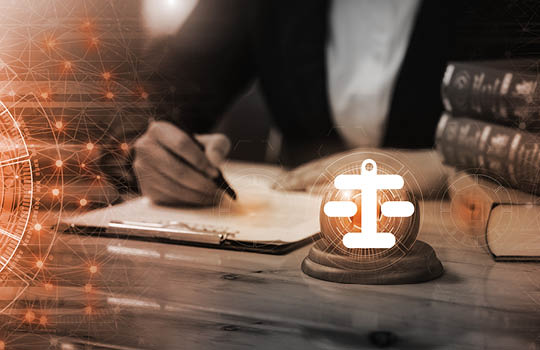The legal industry has long relied on precise and accurate translations to ensure clear communication across different jurisdictions. However, traditional methods of legal translations can be time-consuming, costly, and prone to human error. With advancements in artificial intelligence (AI), the landscape of legal translations is undergoing a profound transformation. AI-driven tools are enhancing speed, accuracy, and efficiency, revolutionizing how legal documents are translated across languages. As AI continues to evolve, its impact on legal translations in 2025 is expected to be more significant than ever before.
The Role of AI in Legal Translations
AI is reshaping legal translations by automating complex processes, reducing translation errors, and increasing accessibility to multilingual legal resources. By leveraging machine learning algorithms, natural language processing (NLP), and neural machine translation (NMT), AI systems can analyze and translate legal texts with greater efficiency than traditional methods. AI-driven legal translation tools are designed to understand context, detect nuances, and adapt to different legal terminologies, making them indispensable for law firms, businesses, and governmental institutions.
Enhancing Accuracy and Consistency
One of the biggest challenges in legal translations is ensuring accuracy and maintaining consistency across documents. Legal terminology varies between jurisdictions, and even minor errors can lead to misinterpretations and legal disputes. AI-powered translation tools use vast databases of legal terms, case laws, and multilingual resources to enhance accuracy and consistency.
Key Benefits:
- AI tools can cross-check legal terminology in multiple languages, reducing the risk of mistranslation.
- Neural machine translation (NMT) learns from past translations to improve future accuracy.
- Context-aware AI systems ensure that legal phrases retain their intended meaning across different legal frameworks.
Speeding Up Translation Processes
Manual legal translations can be time-intensive, often requiring multiple rounds of review and revisions. AI significantly accelerates this process by providing real-time translations, allowing legal professionals to access translated content instantly.
How AI Speeds Up Legal Translations:
- Automated translation software quickly processes large volumes of legal texts.
- AI-powered chatbots assist with instant legal inquiries in multiple languages.
- Machine learning algorithms continuously refine translations based on new legal developments.
By reducing turnaround time, AI enables legal professionals to focus on more complex aspects of their work while ensuring fast and efficient translations.
Improving Cost Efficiency
Traditional legal translations can be expensive due to the need for specialized human translators, legal experts, and proofreading services. AI-powered solutions help reduce costs by automating many aspects of the translation process.
Cost-Saving Benefits:
- AI reduces reliance on expensive human translators for routine legal documents.
- Automated translation services provide affordable alternatives for small and medium-sized businesses.
- AI minimizes the need for multiple rounds of revisions, cutting down on overall translation expenses.
Addressing Legal and Regulatory Compliance
Legal translations require strict adherence to regulatory requirements and jurisdiction-specific legal terminology. AI-driven translation tools incorporate compliance checks to ensure that translations meet legal standards across different countries.
AI’s Role in Compliance:
- AI tools integrate legal dictionaries and databases to ensure compliance with local laws.
- Machine learning models adapt to changes in regulations and update translations accordingly.
- AI systems help identify discrepancies and flag potential compliance risks in translated documents.
Overcoming Language and Cultural Barriers
Legal translations must account for cultural and linguistic differences to ensure clarity and precision. AI-powered tools analyze linguistic nuances, idioms, and legal expressions to deliver culturally appropriate translations.
How AI Handles Language Barriers:
- AI models are trained on diverse datasets to recognize regional language variations.
- Natural language processing (NLP) enables AI to understand contextual differences in legal documents.
- AI-enhanced localization ensures legal texts are adapted to cultural norms and legal systems.
The Integration of AI with Human Expertise
While AI plays a transformative role in legal translations, human expertise remains essential. AI tools complement human translators by handling repetitive tasks, while professionals provide the necessary legal and contextual oversight.
Human-AI Collaboration:
- Legal experts review AI-generated translations to ensure accuracy and legal integrity.
- AI assists human translators by offering suggestions and automating terminology checks.
- The synergy between AI and human professionals ensures a balance between efficiency and precision.
Ethical and Security Considerations
The increasing reliance on AI in legal translations raises concerns about data privacy, confidentiality, and ethical considerations. Ensuring the security of sensitive legal documents is paramount.
Addressing Security Challenges:
- AI-powered translation platforms use encryption to protect confidential information.
- Compliance with data protection laws (e.g., GDPR, CCPA) ensures secure handling of legal texts.
- AI ethics frameworks guide the responsible use of AI in legal translations.
The Future of AI in Legal Translations Beyond 2025
As AI technology continues to evolve, its impact on legal translations will become even more profound. Future advancements are expected to introduce more sophisticated AI models capable of understanding complex legal concepts and delivering near-human translation quality.
Emerging Trends:
- AI-driven multilingual legal databases for seamless access to global legal resources.
- Integration of blockchain technology for secure and tamper-proof legal translations.
- AI-powered voice recognition for real-time legal document interpretation.
Crisis Management and Emergency Legal Assistance
Legal emergencies can arise unexpectedly, and having a trusted legal partner is essential. Rubin Law Firm provides crisis management and emergency legal services for urgent situations, including business disputes, family law conflicts, and real estate issues. When you need immediate legal assistance, call 02-5637768 or visit Rubin Law Firm.
